Panel Participants
- Richard L. Schilsky, MD, FACP, FASCO
Chief Medical Officer, ASCO, Alexandria, Virginia - Linnea Olson
Lung Cancer Survivor, Clinical Trials Participant, Artist, Boston - Elizabeth Blackburn, PhD
Nobel Laureate, President, The Salk Institute, La Jolla, California - Michael B. Atkins, MD
Deputy Director, Georgetown-Lombardi Comprehensive Cancer Center, Washington, DC - Otis W. Brawley, MD, FACP
Chief Medical Officer, American Cancer Society, Atlanta - Sandra Horning, MD
Chief Medical Officer and Head of Global Product Development, Genentech, a member of the Roche group, San Francisco
The Cancer Moonshot initiative is bringing together scientists, oncologists, patient advocates, and representatives of the biopharmaceutical industry with renewed collaborative focus and the ambitious objective of consolidating 10 years of cancer research in 5 years. Achieving this outcome will require unprecedented cooperation by all stakeholders to prioritize and focus on the highest impact emerging and unforeseen scientific pathways of cancer research.
For a congressional briefing held on April 25, 2016, the National Coalition for Cancer Research brought together an esteemed panel of experts to discuss this groundbreaking initiative and provide key insights as to how we can accomplish the Moonshot goal. Many central themes emerged from the discussion as panelists offered their perspectives on priority areas of focus that are rich for acceleration.
Need for Common Vocabulary
“Now is a special time in the history of cancer research and cancer care,” remarked Richard L. Schilsky, MD, FACP, FASCO, Chief Medical Officer, ASCO, Alexandria, Virginia, who moderated the session. Dr. Schilsky’s optimism about the significant progress that has been made in the fight against cancer—as a result of sustained investments in research—was evident. “The typical patient diagnosed with cancer today has better than a two-thirds chance of being alive 5 years from now, and many patients will be cured,” he stated.
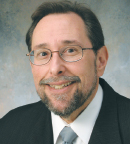
We must develop a common standard vocabulary so that … we are sharing similar pieces of data and don’t end up drawing erroneous conclusions.— Richard L. Schilsky, MD, FACP, FASCO
Tweet this quote
Despite recent advances in the field, he noted that several challenges remain. “Basic science research has provided enormous insight into the fundamental causes of cancer but has also revealed the tremendous heterogeneity of cancer and its incredible ability to adapt and develop resistance to treatment.” He highlighted the need for better biomarkers to identify which individuals are at highest risk of recurrence and of developing cancer.
Dr. Schilsky also commented that we lack sufficient time and money to learn everything that still needs to be learned about cancer prevention and treatment through traditional clinical trials. Nevertheless, he said, we have the ability to accelerate progress against cancer by sharing data from electronic medical records. However, “we must develop a common standard vocabulary so that … we are sharing similar pieces of data and don’t end up drawing erroneous conclusions.” Thus, one of the priorities of the Moonshot must be a national medical vocabulary that is standardized and widely adopted by the scientific and medical community, he said.
‘Patients as Partners’
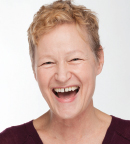
I am the expert on my own experience.— Linnea Olson
Tweet this quote
As a patient who has survived lung cancer and participated in numerous clinical trials since April 2005, Linnea Olson offered a unique perspective on the clinical trials experience. (For more about Ms. Olson’s experience, see her Patient’s Corner article on page 86.) “Clinical trials have become my lifeline, my next best hope,” she remarked. “When I chose to enroll in my first clinical trial, I knew three things: (1) Experimental therapy might or might not extend my life and could hasten my death. (2) The only other participant at my institution had died almost immediately in large part by side effects brought on by experimental therapy. (3) If I did not enroll, my cancer would surely kill me.” She confessed she was terrified when she entered her first clinical trial, but she trusted her oncologist and felt the trial offered a “sliver of hope.”
Ms. Olson pointed out that despite the efforts of many in the oncology community, only 3% to 5% of adult patients choose to participate in clinical trials. She commented that she was incredibly fortunate that the opportunity for a clinical trial was presented to her and that her oncologist was willing to explain the trial in a way that she could easily comprehend.
“I didn’t have to find it myself, as many patients do, and the trial was offered at my home institution, so the cost and hassle of traveling a great distance were not an additional challenge,” Ms. Olson said. She emphasized that if we want patients to participate in clinical trials, we need to remove some of the barriers.
Her one piece of advice for the Moonshot initiative is to embrace the concept of “patients as partners,” and she noted, “I am the expert on my own experience.”
‘Smart Data’
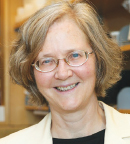
Cancers are not standing still; they are changing all the time. This [data] sharing must be done in a dynamic way.— Elizabeth Blackburn, PhD
Tweet this quote
Elizabeth Blackburn, PhD, Nobel Laureate, President, The Salk Institute, La Jolla, California, acknowledged that there are limitations to the scientific knowledge that has been gained in recent years, and “we must continue to invest in and understand what we still don’t know.” She cited the example of immunotherapy, noting that this treatment approach arose from the basic science of understanding the immune system itself.
In her remarks, Dr. Blackburn highlighted three main areas of focus for the Cancer Moonshot. First, she believes it is vital to invest in research to better understand all of the ways that we can harness the immune system. “There are still many unknowns, and we can’t just be content with the approaches that are working already.”
Second, in the era of big data, she would like to see big data become “smart data.” The best way to accomplish that, she said, is by sharing data from patients to clinicians, between patients, and from clinicians to scientists. “Cancers are not standing still; they are changing all the time. This sharing must be done in a dynamic way,” she stated.
Finally, she advised that it is crucial to focus on preventing cancers. “We want to be able to intercept cancers before they even start.” She encouraged scientists to investigate whether particular approaches might be relevant earlier and earlier in the course of the disease.
Adjuvant Immunotherapy
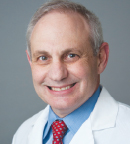
The goal is no longer to turn cancer into a chronic disease, but to make it a curable disease.— Michael B. Atkins, MD
Tweet this quote
Michael B. Atkins, MD, Deputy Director, Georgetown-Lombardi Comprehensive Cancer Center, Washington, DC, focused much of his remarks on immunotherapy, an approach that he believes is “critical to making the Cancer Moonshot a reality.” He cited the recent progress this treatment has had in melanoma. “As recently as 5 years ago, melanoma patients had a bleak prognosis. Half of patients would not survive longer than 6 to 9 months. Today, with immunotherapy, over half of such patients can expect to be cured with less than a year of outpatient treatment and can live out the rest of their lives free of cancer.”
A particular class of immunotherapies—the anti–programmed cell death 1 (PD-1) inhibitors—have shown responses in 20 different cancers and have already received U.S. Food and Drug Administration approval for melanoma, lung, and kidney cancers. “No single treatment target in the history of oncology has produced such broad-spectrum activity,” he declared. Dr. Atkins noted that all 10 PD-1 pathway–based phase III clinical trials reported to date have shown significant survival advantages.* “These antibodies are producing lasting benefits without significant toxicity, making them ideal agents to be used in earlier stages of disease, in patients with comorbidities, and as backbones for combination treatment.”
Dr. Atkins believes that a better understanding of how to use immunotherapies in the adjuvant setting will have the most impact. He noted that it is critical to create pharmaceutical, government, and academic partnerships to launch adjuvant trials and to design such trials in a way that would get information quickly and allow as many patients as possible to gain access to the newest therapeutic approaches.
“The goal is no longer to turn cancer into a chronic disease, but to make it a curable disease.” He said that with immunotherapy, this vision is fast becoming a reality for many patients with many cancer types.
Coordination of Care
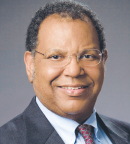
One of the problems is that the technologies and knowledge are not being adequately disseminated throughout our country.— Otis W. Brawley, MD, FACP
Tweet this quote
Otis W. Brawley, MD, FACP, Chief Medical Officer, American Cancer Society, Atlanta, emphasized the need to support both basic and clinical research. He pointed out the real progress that has been made in the fight against cancer, noting that since 1991, cancer mortality rates have decreased by 25%. Dr. Brawley attributes much of this progress to efforts aimed at prevention, smoking cessation, improvements in treatment, and wise screening.
He noted that the definition of cancer is evolving: It is now one that involves “genomics, proteomics, and things that were not even imaginable 50 years ago.” He is gratified about these advancements but admits they have been very heterogeneous within the United States. For example, there has been a 40% decline in colon cancer death rates as a whole, but there are 10 states that have had less than a 10% decline. “One of the problems is that the technologies and knowledge are not being adequately disseminated throughout our country,” he said.
Dr. Brawley highlighted some of his own research showing that 20% of women with breast cancer get less than optimal care—a disparity that he has noticed usually results from lack of coordination and fragmentation of care. Thus, he believes that one of the biggest priorities for the Moonshot should be better coordination of care.
Data Sharing and Transparency
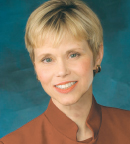
Collaboration is about understanding what each and every one of us can do and contribute to this effort. It is essential to effective partnership that each is respected and working toward a common goal.— Sandra Horning, MD
Tweet this quote
Sandra Horning, MD, Chief Medical Officer and Head of Global Product Development, Genentech, a member of the Roche group, San Francisco, emphasized that now is an exciting time in history where science and technology are converging in the fight against cancer. She warned, however, “this is not enough,” and “policies are needed to help create an environment that is conducive to taking advantage of this.”
Dr. Horning stressed the importance of a need for a commitment to data sharing and transparency. “We are now at a time where we have a huge amount of information available from different sources. It is important to bring new partners to the table—people who know how to aggregate and analyze these data.”
She also highlighted the demand for clinical and regulatory science to keep up with the pace of basic science, specifically regarding endpoints. “There is a need for work on meaningful endpoints that lead to good decision-making in drug development, in clinical trials, and for registration and approval.” Additionally, Dr. Horning pointed out that as clinical science evolves, it will be more and more important to consider how to capture the experience of the patient in a real-world setting.
Dr. Horning acknowledged the need for community participation in clinical trials. She emphasized the need to involve community physicians because they are key to advancing their patients’ outcomes through clinical trials. “Patient access to clinical trials and to influencing clinical trials and the endpoints as full partners is very important.” She thinks an important area of focus is to “establish a framework for clinical trials for embedding biomarkers and adaptive designs that lead to more informative endpoints that allow us to reach decisions more quickly.”
Dr. Horning said that collaboration is key to accelerating progress of the Cancer Moonshot. “Collaboration is about understanding what each and every one of us can do and contribute to this effort. It is essential to effective partnership that each is respected and working toward a common goal,” she concluded. ■

